Coffee comes shrouded in myths and legend. It’s hard to pinpoint where exactly some of these misconceptions came from (or *why* they came about) but we all seem to have heard of them.
In today's article the offending myths I'll cover are:
- Caffeine has a half-life of 8 hours.
- Dark roast coffee has more caffeine.
- Decaf doesn’t taste as good as real coffee.
- Coffee dehydrates you.
- Coffee is bad for you.
(Spoiler alert on that last one: it can be… but not all coffee is created equal 😁)

As the purveyor of the wonders of coffee, it’s high time I liberate coffee from this bad rap. With a little help from some good old science.
1. Caffeine has a half-life of 8 hours (and so ruins your sleep)
For too long wellness ‘experts’ have been saying caffeine has a half-life of 8 hours, or some say even longer! This would mean half of the caffeine is still left in your system 8 hours after drinking coffee. Some cite this as the reason you should quit coffee as it keeps you up at night and interrupts your sleep.
It’s simply not true.
Caffeine’s half life can be as little as 1.5 hours in some people and 9.5 hours or even longer in others! (1).
It’s a combination of your CYP1A2 and ADORA2A genes which mostly dictate that, as well as your overall liver and kidney health.
Even just the CYP1A2 gene has over 40 different variations (single nucleotide polymorphisms, SNPs) (2). There’s so much variability between individuals that sweeping generalisations definitely can’t be made here.

Other studies show that around half of people are ‘fast metabolisers’, 40% are ‘medium metabolisers’ and only around 10% are ‘slow metabolisers’. (3) So this seems to indicate more people are in the lower end of the 1.5 to 9.5 hours range.
Regarding drinking coffee late in the day, anecdotally, if you go to most Mediterranean countries, including Blue Zones, and you’ll find centenarians drinking coffee late in the day… yet they still live long, healthy and happy lives to well over 100 years old!
A large longitudinal study in 2019 concluded that caffeine consumption even within 4 hours of bed time doesn’t disrupt your sleep (4).
Another study in 2013 concluded (5):
Caffeine abstinence in the evening might not be helpful in sleep promotion."
Then it ended with possibly my all-time favourite final sentence of any study:
(This study) highlights the need to implement evidence-based practice in health promotion."
So true.

However, coffee of course can affect your sleep. But it’s not as black and white as some make out and you should listen to your own body and decide yourself what time you should switch from regular to decaf coffee.
If in doubt, as a general rule, we recommend most should stick to caffeinated coffee in the morning, then switch to decaf in the afternoon. Read more on our specific recommendations in my article How much Coffee Should you Drink for Maximum Health Benefits.
2. Dark roast coffee has more caffeine
The amount of caffeine in a single coffee bean is no different in a dark roast vs a light roast coffee. But this is half true because as you roast coffee, water evaporates so there is less water in the bean meaning the weight of the caffeine relative to the total the weight of the bean slightly increases. But only very slightly.
Read our article ‘The Caffeine Content of Exhale Healthy Coffee’ to read how the difference between the caffeine content of a cup of our House Roast and Dark(ish) roast coffees is so small it’s less than 1mg of caffeine per cup!

3. Decaf coffee doesn’t taste as good as regular coffee
Not true of all decafs. Exhale decaf tastes as good as our regular coffee. Side by side I guarantee you won’t be able to tell which is the decaf. I’m so confident, if you buy a Taster Pack of our decaf today and don’t love it, quote this blog and I’ll give you a full refund!
Shop Exhale Healthy Coffee - 150g Taster Packs
Exhale decaf is processed using the chemical-free Mountain Water Process which uses nothing but pure glacial water from the highest mountain in Mexico, the Pico De Orizaba to gently decaffeinate our coffee. The best part is it’s so selective that it leaves the taste intact, as well as leaving more of the healthy polyphenols in place for a healthier, more delicious brew.
4. Coffee dehydrates you
It doesn’t. Caffeine alone is dehydrating, but we now know the amount of liquid you drink with your coffee counteracts that. Some studies say it’s net nil but others go further and conclude that
in habituated coffee drinkers coffee provides similar hydrating qualities to water!!! (6)
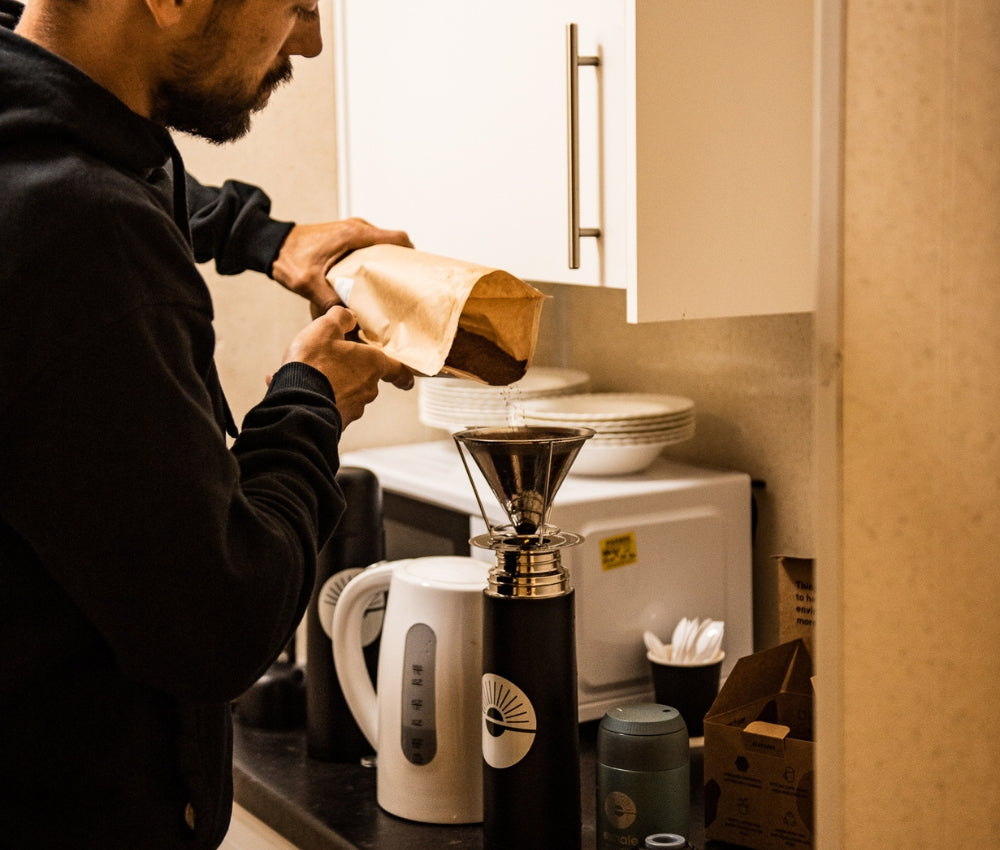
5. Coffee is bad for you
This one’s half true.
A cup of poor quality, regular coffee is a guilty treat and can be bad for you.
Most coffee’s that are over roasted and poorly handled can lose over 90% of their healthiest compounds, it’s polyphenols (7, 8). Read more on that in our article ‘Light vs Dark Roasted Coffee’
Most coffee’s also contain mycotoxins, some at dangerously high levels. Bold statement, but read our article ‘The Truth About Mycotoxins in Coffee: Do we Really Need to Avoid Them’ for more on that.
Finally coffee is one of the most sprayed food crops on the planet with pesticides which can make their way into your mug and cause all sorts of health issues. More on that in our article ‘Is Organic Coffee Better for you or the Environment’.
However,
a cup of Exhale coffee that’s been independently lab tested to be bursting with antioxidants, has been optimised for polyphenols and is one of your diets richest sources of vitamin B3 is undeniably bloody good for you.
It’s also independently lab tested to be free from moulds, mycotoxins, pesticides and heavy metals so you can rest safe in the knowledge that as well as being ridiculously good for you, it’s also contaminant-free... so there's no guilt in this treat!
And there you have it. Never again let a myth stand in the way of you and your brew!
Al x
P.S. Let me know in the comments below if you believed any of the above?!
1. https://www.ncbi.nlm.nih.gov/books/NBK223808/
2. https://bmccancer.biomedcentral.com/articles
/10.1186/s12885-016-2096-5
3. https://www.biorxiv.org/content/10.1101/
2022.06.14.496190v1.full.pdf
4. PMID: 31386152
5. PMID 23218455
6. PMID: 24416202
7. Healthline
8. https://biomedres.us/fulltexts/BJSTR.MS.
ID.003452.php#:~:

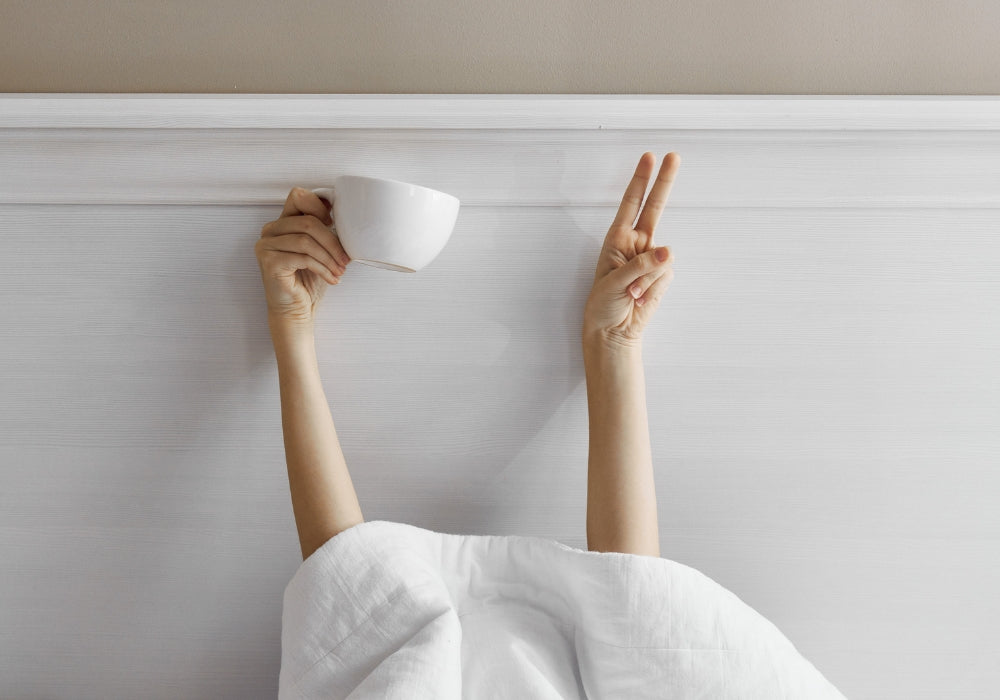


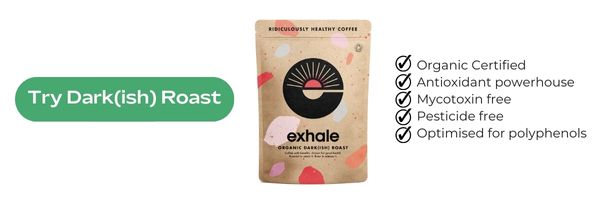
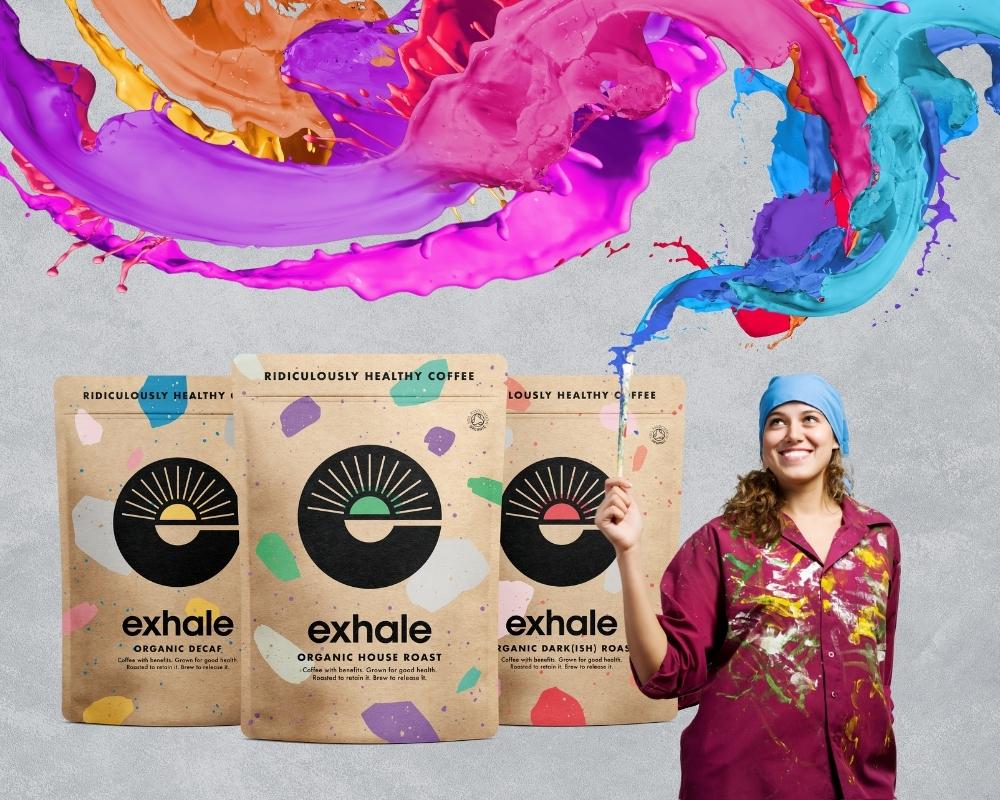
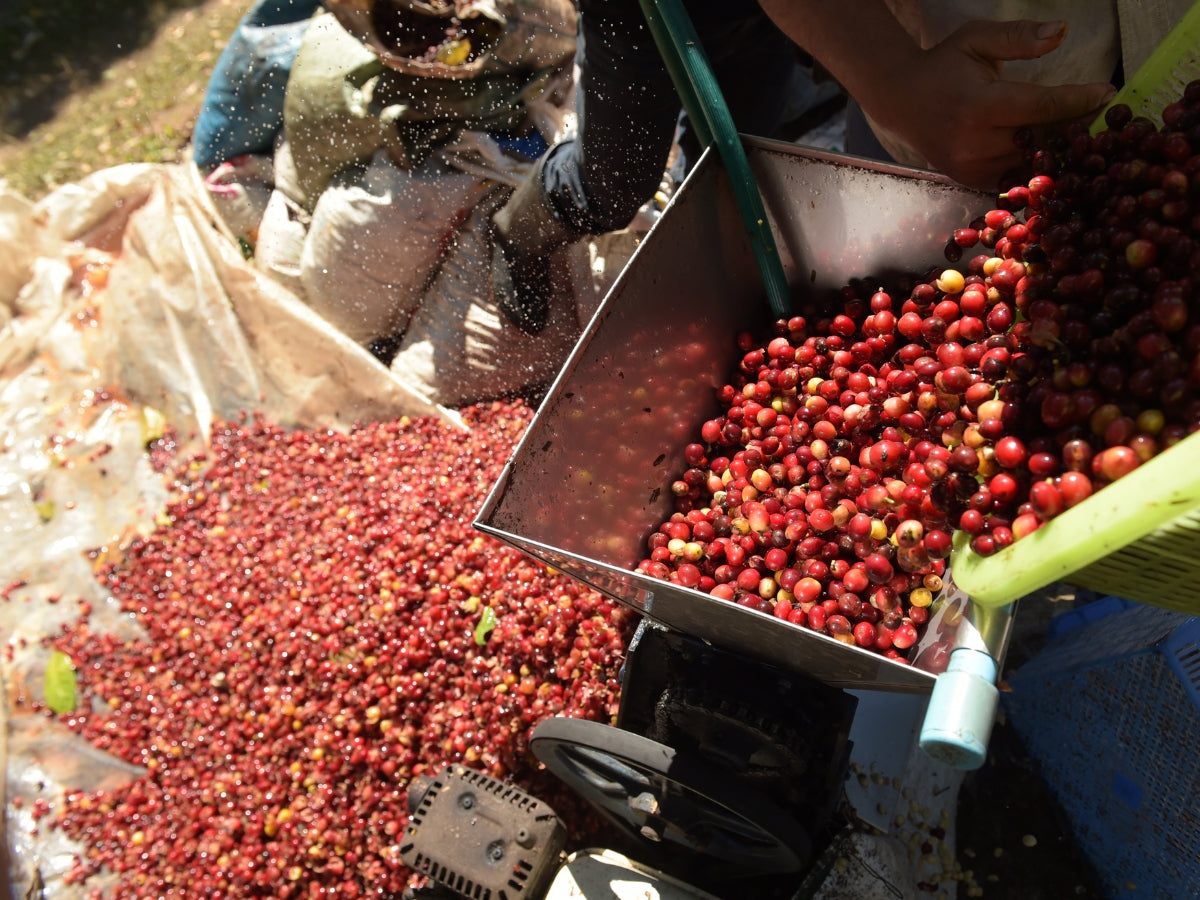
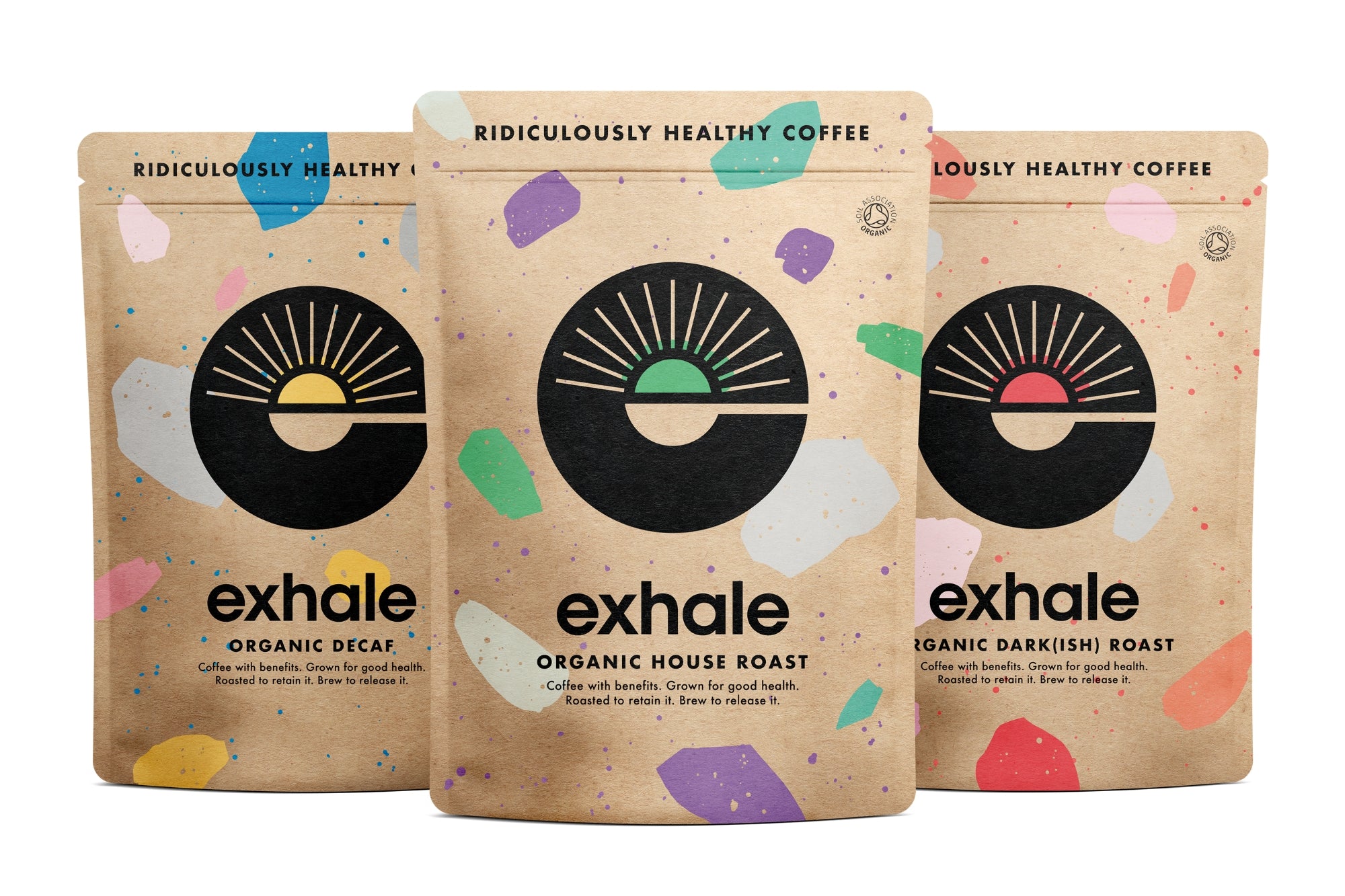
4 comments
Maureen
Best coffee ever. Hate it when I run out and waiting for next order. Love all the research you put in. A little pricey but no comparison to other coffee, well worth it. Keep up the hard work, best wishes to all .
Alice Sheldon
Love love love this coffee! So grateful to have discovered you guys at a chance meeting in the Lakes. My new morning coffee ritual is a total non negotiable now and I can absolutely testify to the yumminess of the decaf 🤸♀️🙏
GLORIA
Hello, really glad l found your company..
So pleased to learn about your coffee .
I have some health issues so have purchased your decaf..
just waiting for cafeteria.. thank you for your explanations..
Ghislaine Headland-Vanni
I’m a slow metaboliser but I get on so much better with Exhale than any other coffee I’ve tried.
I love your blogs thank you. As a Medical Herbalist I’m all about natural medicine that is backed by science so reading a blog which is interesting, science-based and telling me about health benefits always gets a big tick
Leave a comment
All comments are moderated before being published.
This site is protected by hCaptcha and the hCaptcha Privacy Policy and Terms of Service apply.